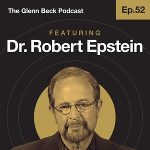This author’s note originally appeared in the October 3rd edition of my author newsletter. To subscribe to my newsletter, click here.
When Mrs. Vasicek and I got married, we decided that there would be no smart devices or screens in our house beyond the master bedroom. Our reasoning had mostly to do with personal health and avoiding bad habits, though there was also some concern about data collection and privacy.
One of the things I really like about this rule is that it keeps me from becoming too attached to my smart phone. Most of us are never be more than an arm’s reach away from our phones, and over time we come to feel almost like they’re a physical part of us. But every night, Mrs. Vasicek and I leave our phones to get ready for bed, and we don’t pick them up again until after we’re fully awake.
I have to admit that I had withdrawals at first, but now I feel much better. My phone is just another tool now; it no longer feels like an extension of myself.
Another thing I really like about this rule is how it sets apart a large section of the house that is free from digital distractions. The bedroom is now a really great place to read. Our one exception to the no screens rule is my Kindle Paperwhite, which uses e-ink anyway so it’s not as bad as an LED screen. It’s also seven-and-a-half years old, so web browsing isn’t really practical.
The other thing I really like is how it sets my mind at ease to know that there’s at least one part of the house where there aren’t any digital recording devices surveilling and collecting data on us. (Please don’t tell me that the Paperwhite is recording me too!)
In the last few years, it seems that Big Tech has been increasingly intrusive in our lives. Over the summer, it seemed like every week there’d be a new story about a Silicon Valley whistleblower, or an undercover investigation, or even a senior Google executive coming out on the record about censorship, bias, and control.

A couple of weeks ago, Glenn Beck did a fascinating interview with Robert Epstein, a researcher who found compelling evidence that Google has both the capability and the motivation to sway major national elections. (Epstein voted for Clinton in 2016, so the interview wasn’t partisan.) It reminded me of a presentation that Chamath Palihapitiya (senior executive at Facebook from 2007 to 2011) gave at Stanford in 2017, where he talked about social media addiction and explained why he doesn’t use social media nor allow his children to do so.
It’s becoming increasingly difficult to navigate our modern, complex world in a way that doesn’t surrender most of our agency to Big Tech and Silicon Valley. It’s also becoming increasingly ambiguous how much of that agency is an illusion, with companies like Facebook and Google influencing us in ways we aren’t consciously aware of.
As an indie author who depends on Amazon for a large part of my income, I’m very much aware of these issues. It’s part of the reason why I’m working so hard to build and maintain this newsletter, so that I don’t have to depend on Big Tech for my book marketing. It’s impossible to be a career author these days without a plan for navigating this world.
Where are we headed? Science fiction gives us a chilling answer. Right now, it appears that China and the East are going the way of 1984, while the United States and the West are going the way of Brave New World.
But those books were written almost a hundred years ago, and technologies have been developed that Orwell and Huxley couldn’t have even dreamed of. It’s time for a new generation of writers to pick up the torch that they handed off to us.
That’s a big reason why I’m writing “Sex, Life, and Love under the Algorithms.” As for where to go next, I honestly don’t know. So much happening in the world today screams out for new science fiction just to make sense of it all, so when I’m not writing fantasy I’ll probably delve more into that.
Whatever else happens, we’re all in this rabbit hole together.